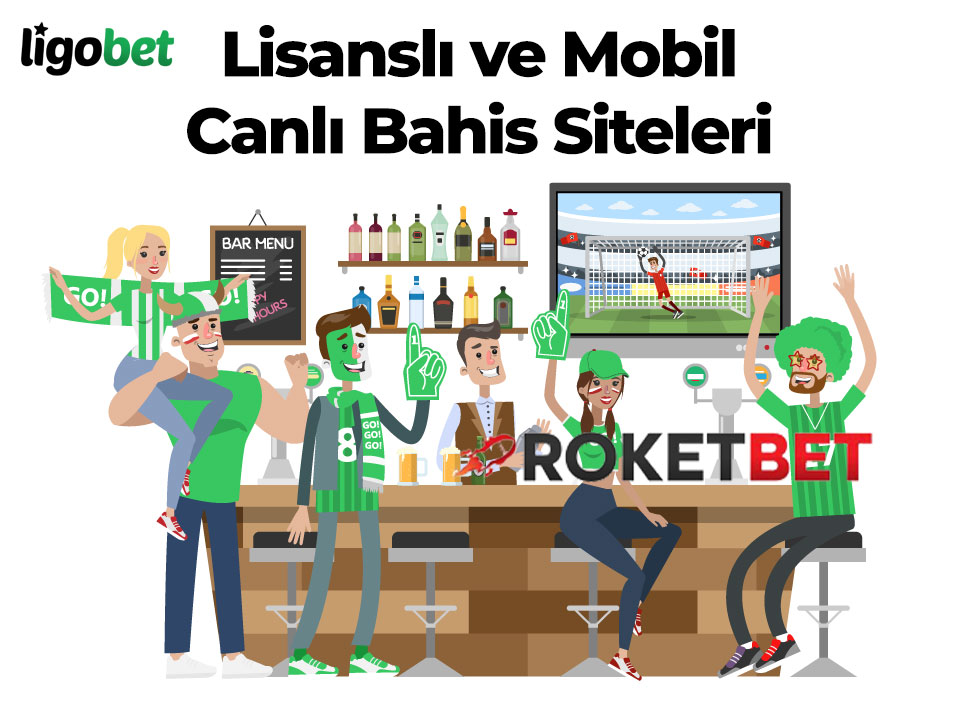Kumar ve bahis tutkunları için deneme bonusu veren siteler, risk almadan oyun dünyasının kapılarını aralıyor. Bu siteler, kullanıcılarına gerçek parayla oynamadan önce deneyim kazanma fırsatı sunuyor. Tipobet, Romabet, Mobilbahis, Bets10, Sahabet ve Artemisbet gibi önde gelen platformlar, geniş oyun yelpazeleri ve cazip bonus seçenekleriyle dikkat çekiyor. Deneme bonusları, özellikle yeni başlayanlar için idealdir, çünkü bu bonuslar sayesinde oyunların kurallarını öğrenmek ve stratejiler geliştirmek mümkün oluyor.

Bu sitelerde, slot oyunlarından masa oyunlarına, canlı casino deneyimlerinden spor bahislerine kadar birçok farklı seçenek bulunuyor. Ücretsiz deneme bonusları, kullanıcıların bu oyunları gerçek para yatırmadan deneyimlemelerini sağlıyor. Böylece, hangi oyunun size daha uygun olduğunu keşfedebilir ve kendi oyun tarzınızı geliştirebilirsiniz.
Deneme bonusu veren siteler, bahis ve kumar oyunlarının heyecanını güvenli ve sorumluluk sahibi bir şekilde yaşamanız için mükemmel bir başlangıç noktasıdır. Şimdi, bu fırsatları keşfedin ve deneme bonuslarının keyfini çıkarın!
Deneme Bonusu Veren Bahis Siteleri

Deneme bonusu veren bahis siteleri, bahis severlerin en çok tercih ettiği platformlar arasında bulunuyor. Deneme bonusu, bahis severlere risk almadan bahis yapma imkanı sunan bir uygulama. Bu bonuslar genellikle bahis sitelerinin yeni üyelerini cezbetmek için sunduğu bir uygulama. Ancak, her bahis sitesinin sunduğu deneme bonusu miktarı veya şartları farklı olabiliyor.
2024 yılında deneme bonusu veren bahis siteleri, kullanıcılarını çeşitli bonuslar ve promosyonlarla karşılamaktadır. Bu siteler, kullanıcıların site hakkında bilgi edinmelerini ve siteyi denemelerini sağlamak amacıyla bu tür bonusları sunmaktadır. Ancak, her site farklı bonuslar ve promosyonlar sunduğu için, hangi sitenin hangi bonusu sunduğunu bilmek önemlidir.
İşte 2024 yılında deneme bonusu veren sitelerden bazıları:
| Site | Deneme Bonusu |
|---|---|
| Tipobet | 100 TL Deneme Bonusu |
| Romabet | 50 Free Spin |
| Mobilbahis | 75 TL Deneme Bonusu |
| Bets10 | 80 TL Deneme Bonusu |
| Sahabet | 100 Free Spin |
| Artemisbet | 50 TL Deneme Bonusu |
Deneme bonusu veren bahis siteleri, kullanıcılarına sundukları bu bonuslarla hem siteyi deneme şansı vermekte hem de sitenin güvenilirliğini artırmaktadır. Önemli olan, hangi siteye üye olacağınıza karar verirken, sitenin sunduğu bonusları ve şartları dikkatlice incelemektir.
Deneme Bonusu Nedir?

Öncelikle deneme bonusu nedir sorusuna yanıt verelim. Deneme bonusu, bahis sitelerinin yeni kullanıcılara sundukları, genellikle ilk üyelik işlemi sırasında verilen bir tür promosyondur. Bu bonus sayesinde kullanıcılar siteyi tanıma, oyunları deneme ve site hakkında genel bir fikir edinme şansı yakalarlar.
- Bonuslar kullanıcıların ilgisini çeker: Bahis siteleri, üyelerinin dikkatini çekmek ve daha fazla kullanıcı kazanmak için çeşitli bonuslar sunmaktadır. Deneme bonusu da bu bonuslardan biridir. Kullanıcılar, deneme bonusu sayesinde siteye kaydolmadan önce site hakkında bilgi sahibi olurlar ve siteyi risksiz bir şekilde deneme şansı yakalarlar.
- Farklı bahis siteleri, farklı deneme bonusları sunmaktadır: Pek çok bahis sitesi, kullanıcılarına farklı miktarlarda deneme bonusu sunmaktadır. 2024 yılında deneme bonusu veren bahis sitelerine baktığımızda, bu bonus miktarlarının genellikle 10 TL ile 100 TL arasında değiştiğini görmekteyiz.
- Deneme bonusu, kullanıcıların siteyi test etmesini sağlar: Deneme bonusu, kullanıcıların siteyi ve oyunları detaylıca inceleme ve test etme fırsatı sunar. Bu sayede kullanıcılar, siteye herhangi bir para yatırmadan önce site hakkında genel bir bilgiye sahip olurlar.
2024 yılında deneme bonusu veren bahis siteleri, özellikle yeni üyeler kazanmak için bu tür promosyonları sunmaya devam etmektedir. Bu siteler, kullanıcıların site hakkında bilgi sahibi olmalarını ve siteyi denemelerini sağlayarak, onların siteye olan güvenini artırmayı hedeflemektedir.
Deneme Bonusunun Avantajları

Deneme bonuslarının sunmuş olduğu en büyük avantaj, kullanıcıların siteyi ve oyunları tanıma imkanı sunmasıdır. Bu bonusları kullanarak, kullanıcılar siteyi keşfedebilir ve hangi oyunların kendilerine daha uygun olduğunu görebilirler. Ayrıca, bu bonuslar sayesinde kullanıcılar, hiçbir maddi risk almadan bahis oynayabilir ve kazanç elde edebilirler.
Deneme bonuslarının bir diğer avantajı ise, bahis severlerin bahis stratejilerini geliştirebilmesidir. Bu bonuslar, kullanıcıların yeni oyunlar denemesine ve bahis stratejilerini test etmesine imkan tanır. Bahis severler, bu sayede daha fazla kazanç elde etme şansına sahip olabilirler.
Not: Deneme bonuslarını kullanırken, her zaman bahis sitesinin belirtmiş olduğu şartlara dikkat etmekte fayda vardır. Bu şartlar, bonusun nasıl kullanılacağına ve kazanılan miktarın nasıl çekileceğine dair önemli bilgiler içerir.
Deneme Bonusu ve Kazanç Maksimizasyonu

Birçok çevrimiçi bahis sitesi, oyuncuları cezbetmek ve mevcut üyeleri memnun etmek için deneme bonusu kullanır. Bu bonuslar çoğunlukla yeni üyelere sunulur, böylece siteyi ve sunduğu oyunları deneyimleme fırsatı olur. Fakat birçok oyuncu, bu bonusları nasıl etkin bir şekilde kullanabileceğini ve onları nasıl maksimum kazanca dönüştürebileceğini tam olarak bilmez. İşte bu noktada devreye biz giriyoruz ve bu konuda size bir rehber oluşturacağız.
Deneme Bonusunu Etkili Bir Şekilde Kullanma

Deneme bonusunun doğru bir şekilde kullanılması, bahis severlerin kazançlarını maksimize etmesini sağlar. Ancak, bunu başarmak için bazı stratejileri bilmek ve uygulamak önemlidir.
- Anlaşmayı Anlama: Her bonus teklifinin belirli koşulları vardır ve bu koşulları anlamak, deneme bonusunun olası getirilerini maksimize etmek için çoğunlukla önemlidir.
- Uygun Oyunları Seçme: Bazı oyunlar, diğerlerine göre daha yüksek dönüş yüzdesi sunar. Bonuslarınızı bu oyunlarda kullanarak, kazançlarınızı artırabilirsiniz.
- Risk Yönetimi: Her türlü bahis etkinliğinde olduğu gibi, bonusları kullanırken de risksiz olmaz. Bu nedenle, bonusları etkin bir şekilde kullanmak ve aynı zamanda riskleri yönetmek önemlidir.
Tüm bu bilgiler ışığında, çevrimiçi bahis sitelerinde sunulan deneme bonuslarını kullanırken sizin için en iyi stratejiyi belirlemek ve bu bonusları etkin bir şekilde kullanarak kazancınızı maksimize etmek mümkündür. Unutmayın, her başarılı bahisçinin arkasında bilgili ve stratejik bir düşünce tarzı vardır.
Sıkça Sorulan Sorular
Bahis siteleri neden bonus verir?
Bahis siteleri, yeni müşterileri cezbetmek ve mevcut müşterilerini teşvik etmek için bonuslar sunar. Bu strateji, oyuncuların siteye üye olmasını veya daha fazla para yatırmasını teşvik eder. Özellikle rekabetin yoğun olduğu online bahis dünyasında, siteler müşteri çekmek için genellikle generöz bonus teklifleri sunar.
Bonusları nasıl kullanabilirim?
Her bahis sitesi, bonusları nasıl kullanabileceğinizi belirleyen kendi kurallarına sahiptir. Genellikle, bonusları kullanmak için belirli bir oranda bahis yapmanız gerekmektedir. Bazı sitelerde, bonusları çekebilmek için belirli bir süre içinde çevrim şartlarını yerine getirmeniz gerekecektir.
Bonus veren siteler güvenilir mi?
Bir bahis sitesinin bonuslar sunması, onun otomatik olarak güvenilir olduğu anlamına gelmez. Siteyi değerlendirirken, lisans ve düzenlemeler, müşteri hizmetleri, ödeme seçenekleri ve site güvenliği gibi diğer faktörleri de göz önünde bulundurmanız gerekmektedir. Ancak, genel olarak bonus veren birçok site, oyuncularını koruma altına almak için gereken önlemleri alır.
Bahis sitelerinde hangi tür bonuslar bulunur?
Bahis sitelerinde genellikle hoşgeldin bonusları, yatırım bonusları, kayıp bonusları, deneme bonusları ve VIP bonusları gibi çeşitli bonuslar bulunur. Bu bonuslar genellikle oyuncuların hesaplarına ekstra bahis kredisi ya da çevrimsiz bonus olarak eklenir.
Bonusları çekerken nelere dikkat etmeliyim?
Bonusları çekerken, genellikle sitenin belirleyeceği çevrimsizlik veya çevirim şartlarını tamamlamanız gerekmektedir. Ayrıca, her site bonusların çekilebileceği maksimum miktarı belirler. Bazı durumlarda, bonusların tamamını ya da belirli bir miktarını çekmek için belirli bir süre beklemeniz gerekebilir.
